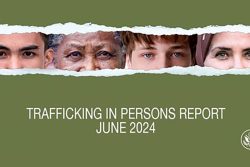On Sunday, June 2 Mexicans elected scientist and left-wing politician Claudia Sheinbaum as their new president. She broke the glass ceiling as the first woman to lead that country after over 200 years of independence and the first woman to be president in North America. In addition, once she takes over the reins later this year, she will be the first climate scientist to lead a country.
Though cited as a climate scientist, Ms Sheinbaum reportedly studied physics as an undergraduate and later earned a PhD on energy engineering, presenting a thesis on energy missions and environmental problems in Mexico. She is said to be very passionate about the environment and has worked gratis on two major reports issued by the Intergovernmental Panel on Climate Change (IPCC). Her stance being at odds with that of her mentor, outgoing President Andrés Manuel López Obrador who is aggressively pro-fossil fuel, means that Ms Sheinbaum will be closely watched by both fans and detractors. The former will be keeping tabs to ensure that she sticks to her campaign promise to boost clean energy in Mexico. The latter will be monitoring for signs of President López Obrador’s influence, which would be revealed by a switch in her position.
It goes without saying that Ms Sheinbaum will also be expected to address Mexico’s endemic problems of drug cartels and the concomitant violence and murders, notwithstanding the fact that none of her predecessors were able to do so. As that country’s la presidenta, she has undertaken to walk a tightrope and there are some gymnastics involved as well. The burning question is whether she will manage to land on her feet come 2030 when her tenure ends.
With the twenty-ninth United Nations Climate Change Conference (COP29) set to take place in Baku, Azerbaijan towards the end of this year, stakeholders will definitely have Ms Steinbaum in their sights. Though he was overtly anti-Donald Trump, as regards certain policies Mr López Obrador appeared to have read the same manual. He had demolished climate change strategies when he took office in 2018, some of which were in place since 2012, pushing fossil fuel production as good for the country’s economy.
Of course, there can be no bets at this stage on Ms Steinbaum’s possible attendance at COP29 in November. However, climate activists will no doubt be observing closely to decide if there can be any determination on which way the wind will blow politically in Mexico.
In literal terms, the country has already been adversely affected by climate change with a few coastal villages flooded to the point of near extinction by rising sea levels over the last few years. From 2020 to date some 600 residents have been forced to move inland owing to coastal erosion. Thousands more were displaced as a result of flooding.
During COP28, a Loss and Damage Fund was operationalised that is expected to help developing countries cope with global warming. It will likely not apply to the people mentioned in the previous paragraph. However, the projected eight million-odd Mexicans who will be made homeless by climate change driven landslides, erosion and flooding over the next 30 years could very well fare better in terms of receiving tangible support.
But it’s not just Mexico and there will never be enough money as long as the status quo remains the same in the world. Even if there is no new fossil fuel prospecting and extraction, islands in the Pacific and the Caribbean that are already extremely vulnerable to rising sea levels, storms, flooding and erosion will see an uptick in these events over the next decade. In just over a score of years, some will actually cease to exist. Just last month, the indigenous Gunas of Gardi Sugdub, an island that is part of Panama, were asked to voluntarily relocate. The sea is reclaiming that island inch by inch.
In other places, nations will grow more impoverished in their attempts to build levees, dams and seawalls to shore up land and battle nature. In Asia, Africa and South America, some 20 countries are counted as high risk in their vulnerability to climate change and are even now plagued by either drought or flooding. Incidentally, Brazil, which is not among them, faced storms and floods last month during which more than 170 people were killed and nearly 580,000 displaced. It was described as the worst disaster in the region’s history.
If nothing about this sounds at all familiar, check your local news. Minus the deaths, it is happening right here, and not just along the coast which is susceptible to rising sea levels. Perhaps one day before it is too late, someone will manage to work out that the billions earned from oil exploitation will not even be enough to install and maintain the infrastructure necessary to keep our crops, animals, and homes safe. Maybe, just maybe, we might manage to keep our heads above water.
Meanwhile, for the sake of her country and the rest of the world, one hopes la presidenta Claudia Sheinbaum surprises her naysayers and makes the right moves. While no one is necessarily looking to Mexico for leadership on climate change, good examples of leaders acting on principle and adhering to science are sadly lacking in today’s world, so even that would be a start.





